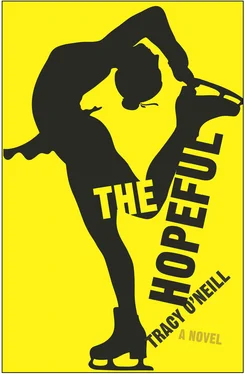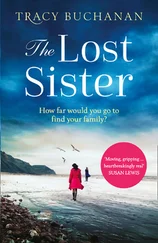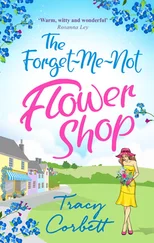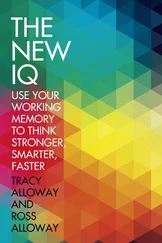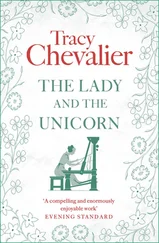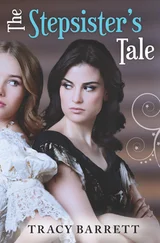Tracy O'Neill - The Hopeful
Здесь есть возможность читать онлайн «Tracy O'Neill - The Hopeful» весь текст электронной книги совершенно бесплатно (целиком полную версию без сокращений). В некоторых случаях можно слушать аудио, скачать через торрент в формате fb2 и присутствует краткое содержание. Год выпуска: 2015, Издательство: Ig Publishing, Жанр: Современная проза, на английском языке. Описание произведения, (предисловие) а так же отзывы посетителей доступны на портале библиотеки ЛибКат.
- Название:The Hopeful
- Автор:
- Издательство:Ig Publishing
- Жанр:
- Год:2015
- ISBN:нет данных
- Рейтинг книги:5 / 5. Голосов: 1
-
Избранное:Добавить в избранное
- Отзывы:
-
Ваша оценка:
- 100
- 1
- 2
- 3
- 4
- 5
The Hopeful: краткое содержание, описание и аннотация
Предлагаем к чтению аннотацию, описание, краткое содержание или предисловие (зависит от того, что написал сам автор книги «The Hopeful»). Если вы не нашли необходимую информацию о книге — напишите в комментариях, мы постараемся отыскать её.
The Hopeful — читать онлайн бесплатно полную книгу (весь текст) целиком
Ниже представлен текст книги, разбитый по страницам. Система сохранения места последней прочитанной страницы, позволяет с удобством читать онлайн бесплатно книгу «The Hopeful», без необходимости каждый раз заново искать на чём Вы остановились. Поставьте закладку, и сможете в любой момент перейти на страницу, на которой закончили чтение.
Интервал:
Закладка:
“If you don’t stop, I’ll make you do yoga,” Ryan said to me once while we stretched. “You’ll give yourself premature wrinkles with that face. AIDS is common as air to male figure skaters over a certain age.”
“Except no one needs it to stay alive.”
“Oh really, Doctor Doyle? You don’t say! Please, please enlighten me with your worldly knowledge of antihistamines and scabies!”
“I just don’t want Sam to be sick,” I said.
“Well I don’t want the wave in my hair to frizz in the humidity, but look at me in August: kinked as any old Shaniqua. C’est la vie, sassy ass. C’est la HIV!”
I tried to convince myself that Sam’s life would continue as long as any other person’s, but my thoughts were like time, inevitable and dangerous and surpassing. Sam continued riding his motorcycle to the rink. He continued clapping in circles— “Round of applause! Round of applause!”—if my poise was to his standards. And when we looked at his arms, these hard meat loins belied by grace, they looked to be such evidence of health Ryan called them the hope diamonds. Sam would continue for as long as any other life, I told myself, but my father slipped him a hundred dollar check in a Christmas card that year.
“What was that for?” my mother asked when she saw the bank statement. She had been wanting to take a cruise, one of those with celebrities and bingo, the kind with television commercials resembling moving postcards.
“Imagine the bills,” my father said.
“I don’t need to,” my mother said. “We have some of our own.”
“Sam’s done beautiful work for Ali.”
“Because we pay him, Alvin. We pay for beautiful work. And now we’re going to pay even more. Look at Magic Johnson.”
“Magic Johnson has millions of dollars in endorsements. Sam is a one-time champion in pairs skating. There are no endorsements for that. It’s not the nineties anymore. America has forgotten about Tonya and Nancy. And it’s not like you get health insurance as a personal choreographer.”
“You’re giving my cruise away for a dying cause,” my mother said. “Or at least the savings for it.”
“That’s morbid.”
“It’s life-affirming. I want to affirm life with a cruise. Do you want our daughter to wake up one day when she’s our age, and all she can do is bum around some scummy rink waving her arms, following little girls across the country, hoping they don’t break a leg, and then she’s retired and she looks back on her life and she’s never even been on a cruise? I’m talking about quality of life, Alvin. I want to play shuffleboard on top of an ocean and show relatives vacation photos at Christmas. I am a valuable human being and I will not be deprived of the joys of life.” Of course, though, it was too late to take back the money. The best he could do, my father said, was not do the same next year.
But the next year Sam was dead. One day there was a sign up on the rink door: “Robert ‘Sam’ Esser passed at eleven forty-seven last night at Mass General Hospital.” We learned it wasn’t the disease that got him. It was the weights. Even since the diagnosis he’d repped through his exercises daily. The doctor encouraged this, called him a horse and other things as healthy. So when he was leaving for a weekend trip to see his mother at her house in Florida, he brought his dumbbells. On the way to the airport, he stopped fast for a pedestrian. The backpack with his weights flew forward from the backseat and clobbered his skull open from behind. It was a tragedy of inertia. It was a life for a life.
“Good years left” had been muttered softly so many times— Sam has a lot of good years left, we had said. The assumption had been a lot of pills over a lot of years, maybe a day off here and there for a trip to the doctor. The sport had lost champions, John Curry the Olympian, for one. Then almost a generation of Canadian champions. Medicine has advanced so far now, and we had hoped so far from ineffectual meant good years left. We hadn’t counted on Sam’s life being usurped by a pedestrian and a dumbbell.
So everyone made peace for a day, even the Russian coaches and the Americans. Those of us whose bodies Sam had designed to the shapes of beauty skated an exhibition in honor of him, acknowledging his death the only way we knew how to live: mutilating ice with the signatures of our blades, trying for the infinitesimally short seconds that were the closest any of us believed we’d get to heaven. Sam’s old partner Fiona Tile sat in the stands. Without him, her every movement would be a fraction.
A new British expatriate’s bank account grew after Sam’s death. Slowly, most of us began going to him for choreography. Sam was dead but figure skating continued on. There would always be a new season. There would always be younger girls. Some of us crossed ourselves and looked up at the fluorescents before competitions in gestures meant to signal that love lasted beyond the body even if life didn’t. Sometimes when I felt like I was going to cry, I tried to shrink the love into a more painless dimension with my mind, but it was as difficult to shrink love as trying to grow a new one.
The drunk driving deaths were different, because I never knew the victims personally. I stretched my eyes to the peripheries of the room and it was a loss for the community, I knew, but I didn’t feel like I was losing. If anything I was stealing. I seized more moments for my crushed choreographer and the good years that hadn’t happened. Then a God Bless and Amen upended the silence through the intercom. The mourning period was over. I was free.
My work was simple addition and subtraction. Plus exercise, minus food, equals Olympic condition. I still had the stationary bicycle, I just needed to start peddling like I was going somewhere again. I slapped a ruler over pages, charted the potential of my progress. I’d need to bring myself down fifteen to twenty pounds, make myself muscle. When I wrote out the math, I saw that losing would take time, especially since I was already working against puberty. That made it more difficult, but not impossible, now that I had the amphetamines. I popped a pill and began pedaling.
On my wall was a photograph of Janet Lynn, who decades and babies before had been a five-time national champion. Afterward, she’d gone anonymous in the Midwest, a wife, a mother, no one you’d know if you weren’t crazed enough to have nostalgia for a time before you were even born, a time when the figures that gave skating its name were still part of it. I stared at her image as I huffed away. Somewhere around mile twelve, the telephone rang. I reached for the phone as I kept pushing toward mile thirteen.
It was my former Aunt Miranda, a ballerina from Omaha who my Uncle Ron had picked up on a cruise by pulling a quarter from her ear, then divorced when he realized her superior command of misdirection. Since the divorce he had always referred to her as The Runt with a Capital C, but I continued to refer to her as my Runt with an A. There was climax to that woman. She moved her arms like windmills when she spoke and painted her fingernails blood red. She knew classical music and emphasized action. “ Coppelia !” she had screamed when I was thirteen. “You were born for this music!” She asked if I knew the story behind the music my coach had selected from my skating routine? Did I know Delibes? “Act I: A young fool falls for a life-like doll and scorns his true love Swanhilde.” She arched her back with her hand to her head then turned away in a snub. “Act II: Swanhilde, pretends to be this doll and comes to life , showing him the error of his fantasy in a life-vacant thing. And finally: the wedding !” She threw a palm up above her head to connote the ballet’s end.
Читать дальшеИнтервал:
Закладка:
Похожие книги на «The Hopeful»
Представляем Вашему вниманию похожие книги на «The Hopeful» списком для выбора. Мы отобрали схожую по названию и смыслу литературу в надежде предоставить читателям больше вариантов отыскать новые, интересные, ещё непрочитанные произведения.
Обсуждение, отзывы о книге «The Hopeful» и просто собственные мнения читателей. Оставьте ваши комментарии, напишите, что Вы думаете о произведении, его смысле или главных героях. Укажите что конкретно понравилось, а что нет, и почему Вы так считаете.
